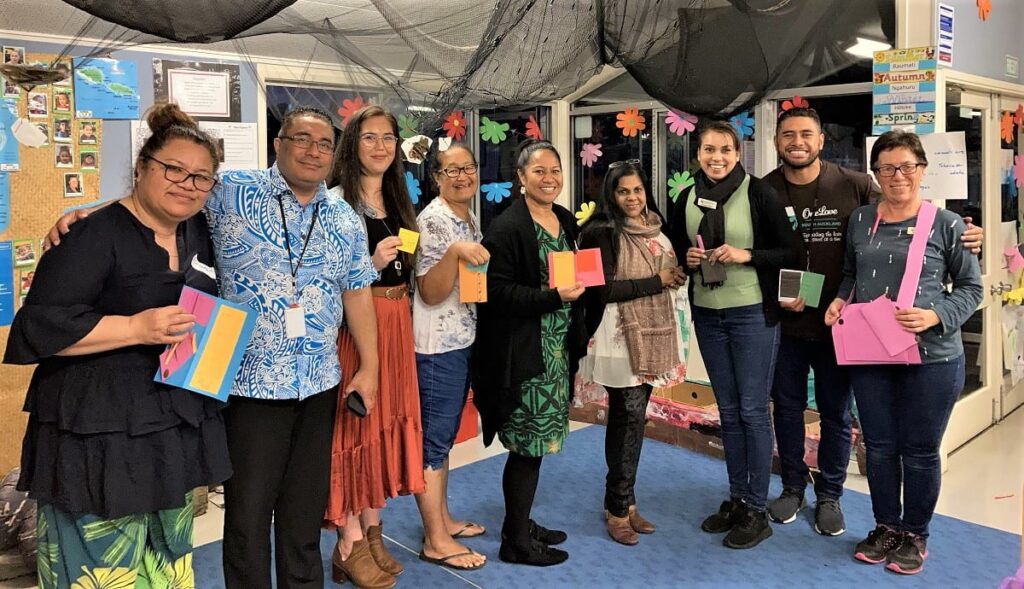
Research shows that a child’s development is rapid in the first 1000 days with 90% of their brain development occurring by the time the child turns 5-years-old.
Early childhood centres (ECE) provide pivotal support for children’s wellbeing and life opportunities but the sector faces challenges of professional development and connecting to families that act as barriers to building a strong health-promoting environment for children and whānau in the community.
In August 2019, Healthy Families South Auckland joined an ECE collective, who are on a journey to build the capability of ECE staff and educators to build stronger relationships with the children and families of their centres for better learning outcomes.
“It’s important that our teachers are able to truly gain more knowledge and understanding to have the confidence on how best they can connect with their families,” says Counties Manukau Kindergarten Association’s (CMKA) Operations Manager, Marianne Mudaliar.
“And for our teachers to be able to share confidently with parents the value of them coming with their children to our centres to learn and grow together.”
May 2021 saw the first in a series of five ECE capability building workshops for a selection of CMKA and Pacific Island centres in South Auckland. Participants are given professional development tools to begin building their capability in design thinking and to create ideas that will help whānau, rangatahi and ECE teachers learn better together.
“It’s a really great opportunity for our centres to network together, engage in conversations and discussions and be able to unpack as we go on this learning journey,” says Marriane.
“We hope to take the information and grow it into wisdom and knowledge and place it in our kite, our toolboxes so that we can utilise it especially for parent participation.”
Healthy Families South Auckland’s Lead Systems Innovator, Fila Fuamatu says ECE educators and support staff are under increasing pressure to respond to the persistent challenges of looking after children from local families and many are going above and beyond the call of duty.
“This is not an issue that’s going away,so we have to look at things differently and come up with locally owned solutions that’s run by the community and teachers themselves.
“This is where the design challenge kaupapa comes in.”

The workshops will lead to the centres running their own design challenges with families to not only connect with but identify areas of need amongst their families.
“This is just the beginning of this capability building programme and ultimately we want to teach design thinking to our participants which will enable them to co-design with whanau and look at addressing the needs of their own communities, ” says Fila.
Design thinking is about uncovering opportunities for innovation-led change that can be prototyped, run and tested by participants for whānau within the community.
“This was an eye-opening experience,” says Centre Manager for participating Mangere ECE Taeaofou i Puaseisei, Selau Alice Kaleopa.
“As educators it was really helpful in terms of allowing us to think more openly to get better outcomes for our children, and it starts with building our relationships with our families.”
This initiative has been funded by the Ministry of Education’s Pacific Education Innovation fund and is a collaboration between Healthy Families South Auckland and Counties Manukau Kindergarten Association.